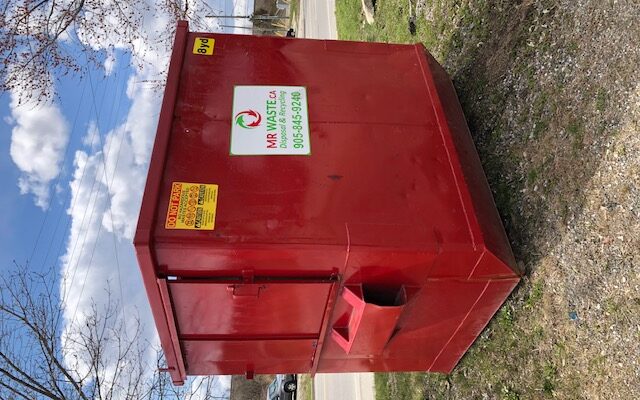Renting a dumpster is an excellent solution for handling large amounts of waste, whether doing a home renovation, yard cleanup, or decluttering. However, making a few mistakes during the rental process can easily lead to unnecessary costs or logistical headaches. In this blog, we’ll explore five common mistakes people make when renting a dumpster and how to avoid them to ensure a smooth and efficient experience with Mr. Waste.
Choosing the Wrong Size Dumpster
One of the most common mistakes is selecting the wrong dumpster size for your project. Renting a dumpster that’s too small means you’ll need a second bin, which can increase costs and delay your project. On the other hand, renting a dumpster that’s too large means paying for space you don’t need.
How to Avoid It:
Evaluate the scope of your project before renting. For example, a small garage cleanout might only require a 10-yard dumpster, while larger construction projects may need a 20- or 30-yard bin. If you’re unsure, the team at Mr. Waste can help you select the appropriate size based on the type and volume of waste you expect.
Overfilling the Dumpster
Overfilling a dumpster is another common mistake. While it’s tempting to pack as much as possible into the bin, exceeding the fill line can cause safety hazards, additional fees, or difficulty transporting the bin. Overfilled dumpsters may only be collected once the waste is appropriately distributed or removed, leading to project delays.
How to Avoid It:
Always be mindful of the dumpster’s fill line, which is usually clearly marked. If you’re unsure how much debris the bin will hold, err on the side of caution by renting a slightly larger size. This prevents overfilling and ensures smooth pickup by Mr. Waste’s team.
Improper Disposal of Restricted Items
Not all materials can be disposed of in a dumpster. Items like hazardous waste, electronics, tires, and certain chemicals often require special handling and disposal methods. Attempting to discard restricted items in a standard dumpster can result in fines or refusal of service.
How to Avoid It:
Before renting a dumpster, ask for a list of restricted items. Mr. Waste provides clear guidelines on what can and cannot be thrown into their bins. If you have items like paint, batteries, or chemicals, contact local hazardous waste disposal services to manage those materials properly.
Ignoring Local Permits or Placement Regulations
Placing a dumpster on public property, such as a street, requires a permit in some areas. Ignoring local regulations can result in fines or moving the dumpster, which can delay your project.
How to Avoid It:
Check with your local municipality to see if you need a permit to place a dumpster on the street or public property. Mr. Waste can also help you understand local rules and assist in securing the necessary permits for your dumpster placement.
Renting for the Wrong Duration
Another common mistake is renting the dumpster for too short or too long a period. Renting for too short a time means rushing your project while renting for too long results in unnecessary rental fees.
How to Avoid It:
Plan out your project timeline in advance. Estimate how long you’ll need the dumpster, considering delays that might occur during renovations or cleanouts. Mr. Waste offers flexible rental periods, so adjusting your timeframe is easy if your project takes longer than expected.
Conclusion
Renting a dumpster can simplify waste management for any project, but avoiding common mistakes is essential to ensure a smooth experience. You can make the most out of your dumpster rental by choosing the right size, avoiding overfilling, adhering to disposal guidelines, following local regulations, and renting for the appropriate duration.
Need help with your next project?
Contact Mr. Waste to rent the perfect dumpster and enjoy a hassle-free waste management experience!

